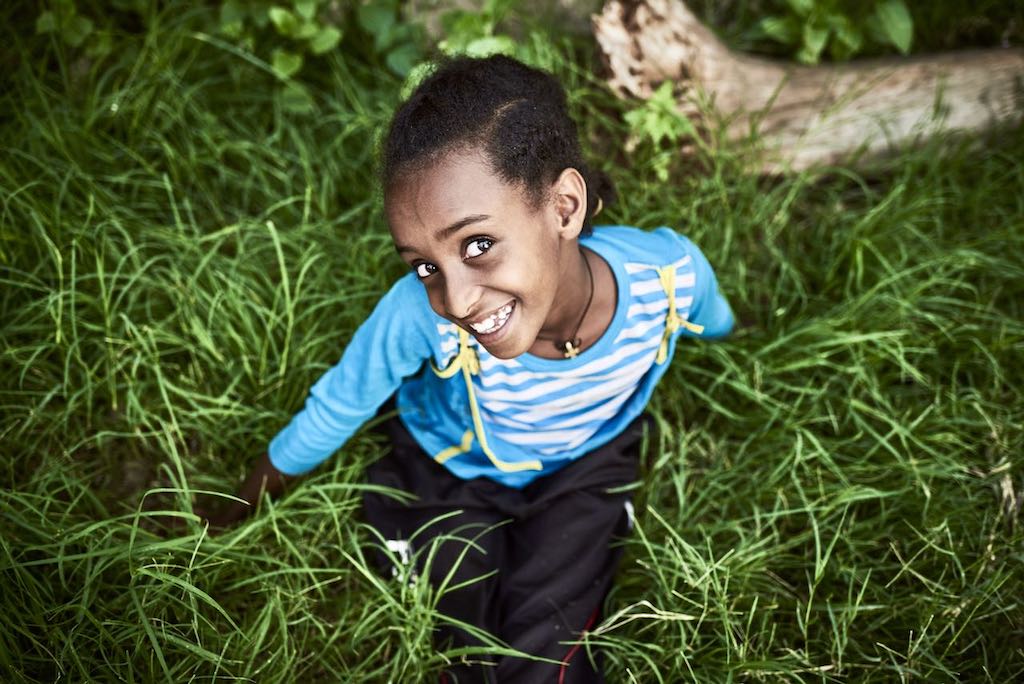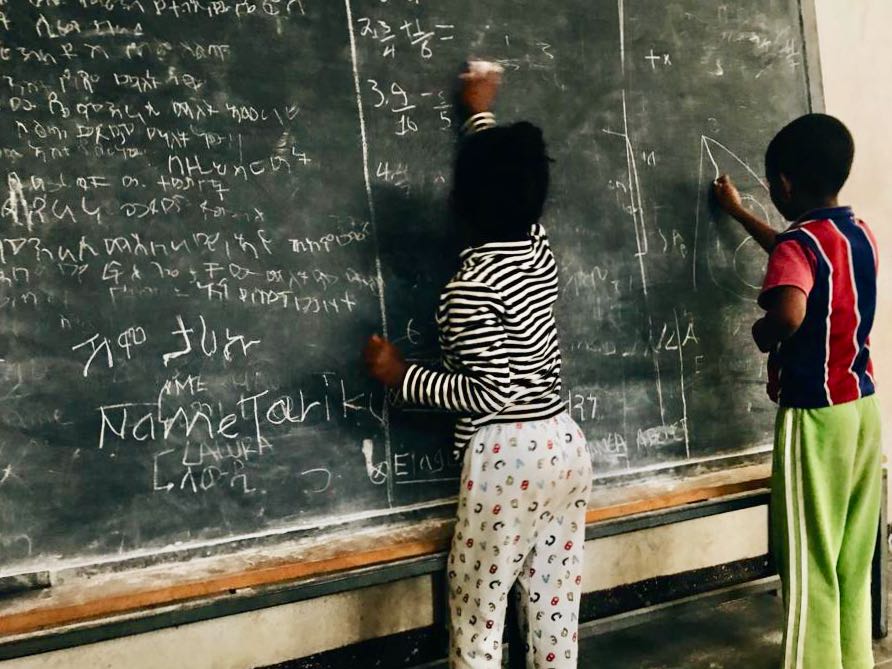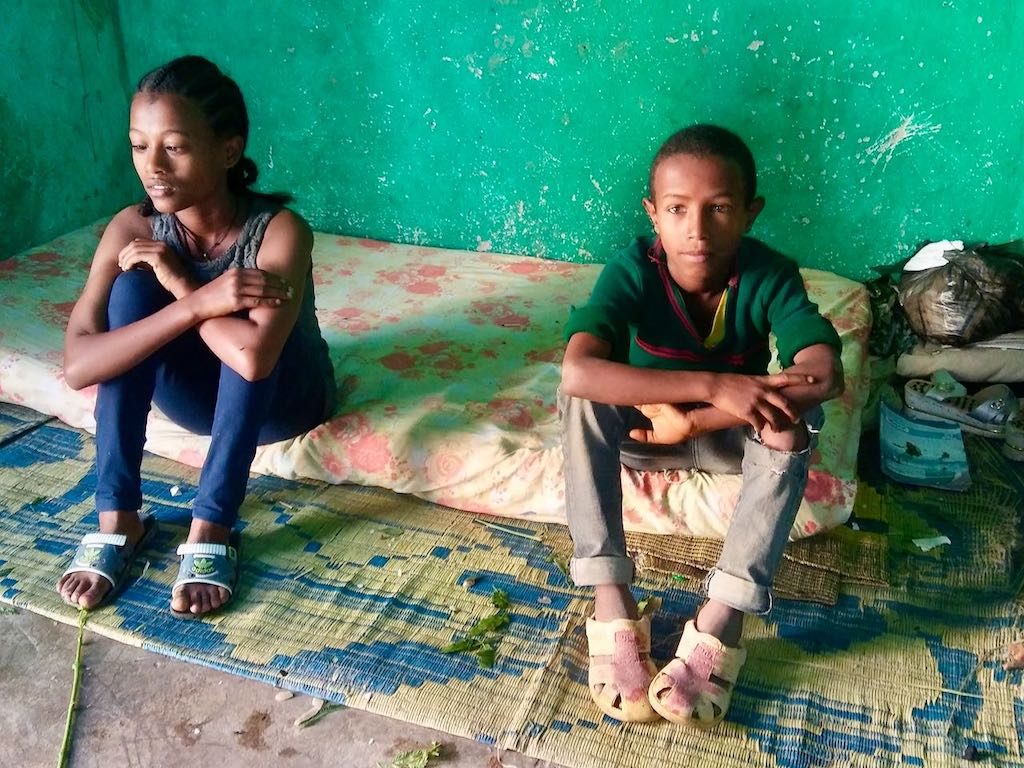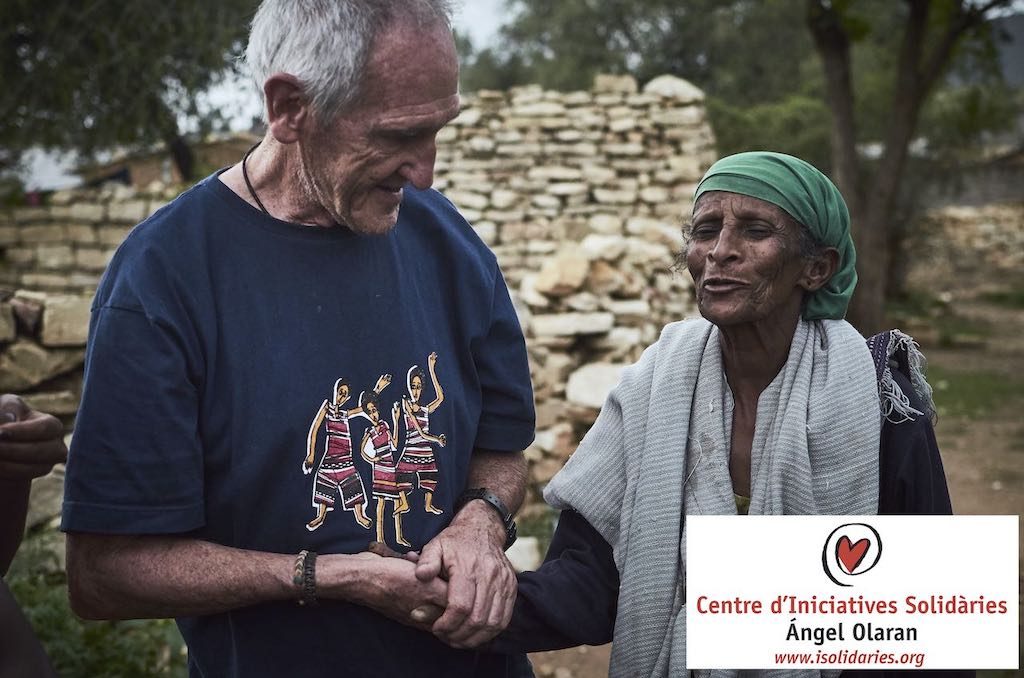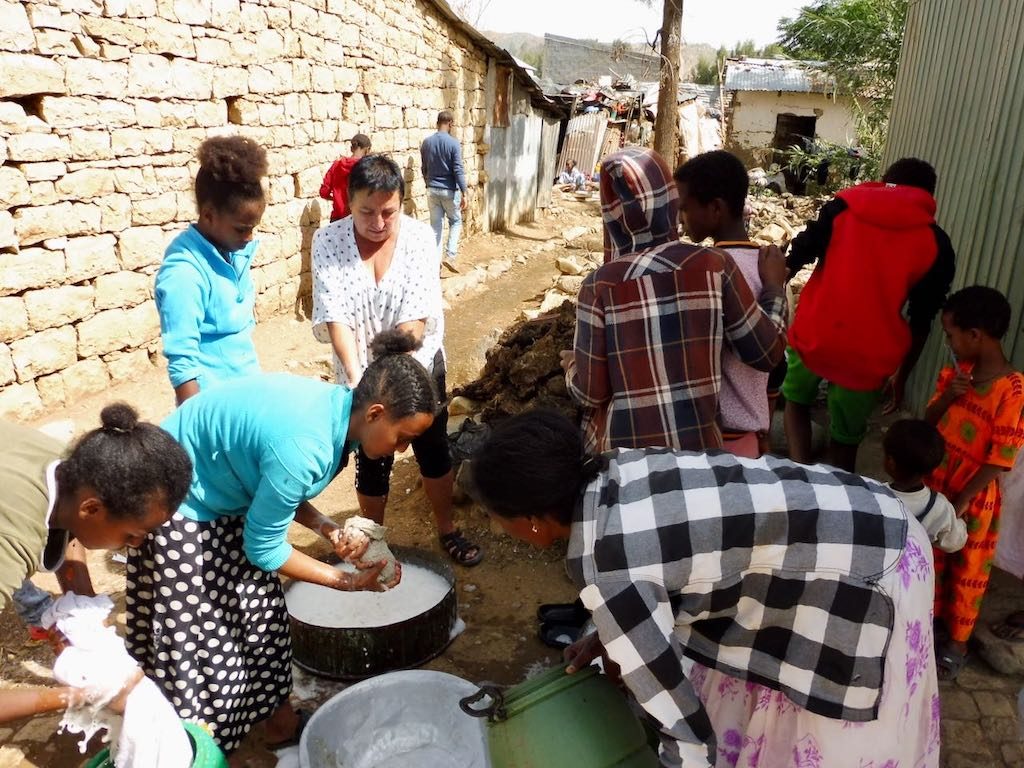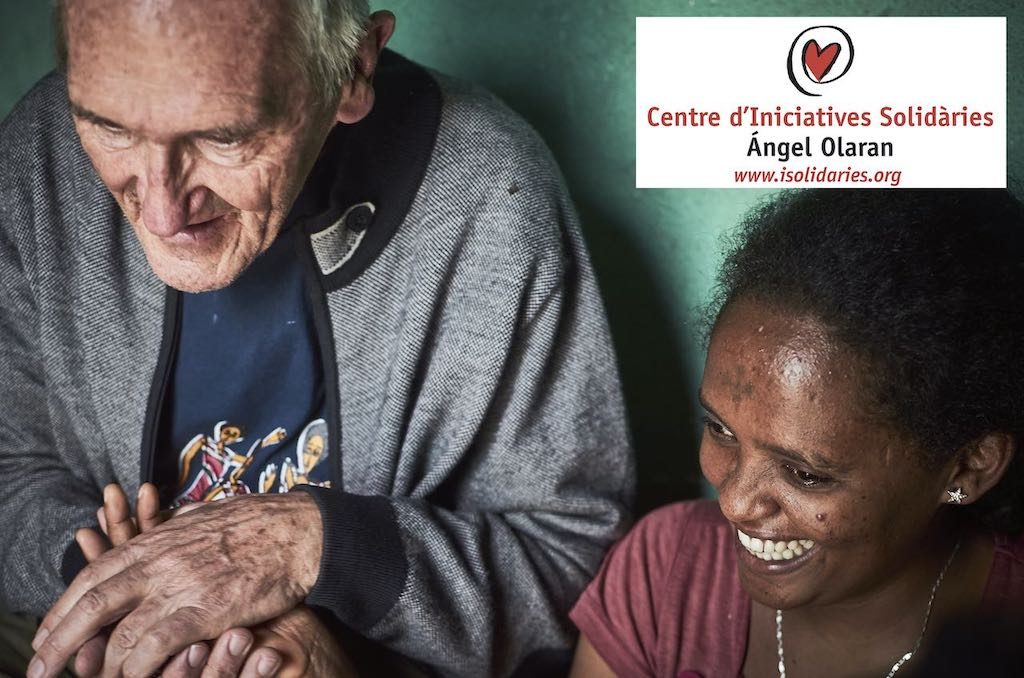Help orphans and vulnerable people in Wukro
Help orphans and vulnerable people in Wukro
The project is carried out through the social development office of Wukro (WSDP – Wukro Social Development Program). The WSDP is a unique institution and reference in the Tigray area as it is a pilot program, effective and efficient implemented more than 25 years ago by the missionary Angel Olaran and that would bring numerous benefits to other areas of the country in the event that it was implemented in these. The various programs that the WSDP implements are in constant coordination with the Social Welfare Office, managed by the local administration and in charge of the evaluation and referral of the individuals or families with whom the WSDP intervenes, thus encouraging the active involvement of local actors, which is essential for the real ownership of the project and for the project to be viable.
The main objective of the Wukro Orphan and Most Deprived Persons Aid Project. The majority intervention revolves around the 550 orphans in the city and its surroundings, but the WSDP intervenes in different collectives in which the common characteristic to all of them is vulnerability.
Care of 550 orphans and vulnerable children
The most important project managed by the WSDP targets 550 orphans living in Wukro and in some surrounding villages. Although the coverage of basic needs plays an important role throughout the project, the fundamental and final objective of the intervention is to trace an itinerary based on the education of minors as a form of empowerment and empowerment of their tools and skills that, in the future, will guarantee them economic and social autonomy. For this reason, and seeking greater integration and better development, the aim has been to make it easier for minors to live in families that can be part of an extended family (older siblings, uncles, grandparents, etc. either because they are families that do not have an institution that has been continuously monitored, thus guaranteeing adequate social and emotional care for minors.
On a monthly basis, relevant financial assistance is provided at the main office of the WSDP, thereby contributing to the coverage of basic needs: accommodation, food, medication, etc. Note, in addition, various tools and tools such as clothing or educational materials are distributed on time.
Improving the quality of life
The main objective of the Wukro Orphan and Deprived Persons Project is to help improve the quality of life of the people of Wukro and the Tigray region. For this reason, initiatives are carried out to achieve certain specific objectives:
A number of initiatives are under way to improve the livelihoods of 550 orphaned and vulnerable children in Wukro and the Tigray area and to provide essential basic support for their education.
Education promotes the social and cognitive development of children and helps them to improve the quality of life for a better future. One of the most worrying developments is the increase in the number of children who have dropped out of school due to the impossibility of paying school fees, being able to cover the costs of uniforms or books, etc.
The challenge is to address this critical problem so that young people can be trained and self-sufficient in the future. The project helps the beneficiaries with different types of support so that they can continue their studies and increase their chances of a brighter future.
The main services put into operation are:
Provision of mentoring services
Stress, trauma, child labour, workload and other problems make it difficult for children to complete their education. The main objective of tutoring is to help students with difficulties to better achieve their results. In addition, this project also provides tutorials for four subjects (English, mathematics, physics and chemistry) to students between grades 7-12. These classes are held on Saturdays in 6 classes. In addition to providing academic support, social workers hold sessions on morality, ethics and citizenship (how to behave to be a good citizen).
Operation of the Multifunctional Centre
The Multifunctional Center consists of bookstore, indoor games, reading classes, TV room and other entertainment services. The main objectives to promote are to provide orphans with educational books to improve their school performance, as well as to create bonds and friendly relations among them through different free activities. The psychological support these children need is directly related to the rights listed in the UN Convention on the Rights of the Child. Children are particularly vulnerable to abuse or exploitation; a girl or boy cannot be physically healthy unless they are in a psychologically safe environment.
Usually when children find themselves in difficult circumstances, living these experiences only makes their feelings about this situation worse. Another way to help children’s psychological needs is by setting up peer groups where they can share similar experiences and support each other.
The distribution of children into groups enhances their trust, relationships and talents. The project therefore reinforces the existing 5 groups, with between 40 and 70 members each. The current groups are anti-HIV/AIDS, literature, children’s rights, football, environment and hygiene. The members are trained and equipped with the kids necessary to carry out the activities. In this way, they learn from each other, setting examples for their peers and developing new friendships within the community. The Centre also helps groups to get to know each other and present their programs with a view to achieving the objectives set.
Psychological support for children
Psychological support is an ongoing process to meet the physical, emotional, social and mental needs of children, as all are essential elements for human development.
Psychological care is carried out through interpersonal interactions that occur in daily relationships: at home, at school and in the community. This includes the love and protection that children experience in the family environment, so it also helps to improve parent-to-child relationships. Caring for these children allows them to increase their self-esteem, an essential factor in learning, developing life skills, participating in society and trusting their own future.
Children in difficult situations have social and emotional needs that cannot be ignored. They need help to live with the trauma of witnessing the death of their parents or a possible separation from their siblings. Many children face family responsibilities after the loss of their parents. Therefore, being able to participate in support groups allows them to have the opportunity to express their feelings and be able to talk to other children in similar situations. Sports or art programmes enable children to play and have fun, that is, to be children again. In order to reduce this type of problem, the project uses various psychological support activities:
Provide a foster care service (foster parents) for orphans who do not have close relatives or caregivers
Foster care is a less permanent form of substitute care that does not include the transfer of parental rights and responsibilities. In practice, this distinction can be a little confusing. Clearly, children experience unavoidable separation from their parents or caregivers, either through the death of their parents (for example, through HIV/AIDS) or through armed conflict or migration. The search for family members is obviously the first option, allowing the child to live with familiar adults, preserving his sense of family belonging and identity. In some cases, however, the child is in a vulnerable situation due to lack of close family, which means that they are forced to run the houses alone, without any family support.
For this reason, the project believes that orphans need to be helped within their community, creating a good atmosphere for socialization. As a result, most beneficiaries live with relatives or caregivers. However, some of the beneficiaries do not have family members or caregivers who can care for them. For these children, the project offers a foster care parenting service. This is the appointment of an adoptive mother who monitors the day-to-day lives of these children until they meet with a close relative. Therefore, the project has adoptive mothers who solve these problems.
Provide children with home and school visits by social workers
Another important psychological aid is to carry out home and school visits.
The aim of these visits is to learn about the overall growth of these orphans in relation to their life model.
The social workers address the needs of the Ovcs (“Orphes and Vulnerable Children”), knowing the social, economic, educational circumstances and the overall growth of these children, by having the caregivers establish a very close relationship with the children.
Social workers who visit Ovcs organize talks to discuss problems related to their growth and development. They train them in housework, health care, education and help them relate to their families. They also care for sick children and accompany them to the nearest hospital, whenever necessary.
During the visits, the families of the Ovcs are also discussed on subjects such as education, the child’s behaviour, personal hygiene, etc. The relationship between the family members is strengthened. These meetings are expected to minimize the number of students dropping out of school, improve the health of the beneficiaries and reduce abuse of Ovcs.
Counselling plays an important role in helping orphans to have a better life. Due to trauma caused by parental loss or economic vulnerability, Ovcs may be more susceptible to different psychosocial, reproductive health or other related problems. On the other hand, there are children with mental or behavioural problems who have developed because of their vulnerability. In this way, counselling services are vital in dealing with this problem, and the requirement of a female social worker is therefore essential.
In line with the basis of the project, education, social workers visit the various educational establishments in Wukro on a weekly basis to monitor children attending school. In these tutorials, it coordinates with the management bodies to follow up on the most complex cases and outline new steps or solutions to follow. In addition, coordination is carried out in the classrooms with the reference tutors. It is important to note that the only requirement for belonging to the project from which the intervention is carried out is to correctly follow the corresponding curriculum.
After the completion of compulsory education, young people have an option to continue their university studies free of charge thanks to the Ethiopian education system where the only expenditure that students have to make is on books or school materials. In this way, they opt for a place at a university in the same town or in another city, and in the latter case, there is the option of entering a fully funded university residence.
For young people who do not wish to continue with their university studies, but do wish to target their future employment in a particular sector, there are a number of vocational training options in various sectors to which they may be eligible: kitchen, hairdressing, general mechanics or electricity, among others. Once the young people finish their education, they have a 3-month margin before ending the intervention from the project in which the economic supports continue to make the active search for work or start a business of their own, where they will also be eligible for initial financial support.
Provide food preparation services to children
Children who live alone and who are incapable or have no help in preparing the daily meals need someone to cook for them and prepare their diets. Cooking services are offered to approximately 30 children who are in this situation of being heads of household. Therefore, there is a need for appointees for this kitchen service task. Foster mothers have the duty to prepare and serve breakfast, lunch and dinner to orphans. Mothers of adoption supervise the tasks performed by the assigned cooks.
Access to health services for Ovcs
Sanitary Services
A fundamental reason for this intervention is to ensure the human development of children (access to health and education) is not at risk.
Health subsidies can prolong the life expectancy of children by improving their availability to go to school, and thus their school performance. In addition, it improves their productivity when they are adults, thus avoiding increases in health costs and social protection at older ages.
Therefore, in line with the country’s health policy, the project focuses more on preventive rather than curative care. To achieve this, health education is provided in personal hygiene and in the means of transmission of HIV/AIDS. On the other hand, each social worker addresses the main health aspects during home visits.
In addition to the above services, the project covers the medical costs of 550 beneficiaries residing in the project areas and facilitates access to medical services for children in need. The project also covers the health costs of 135 beneficiaries to be treated in larger hospitals outside the project areas.
Secure living environment for 250 vulnerable people
It is necessary to achieve a safe living environment for 250 marginalised elderly people and for mentally or physically disabled people in Wukro. The aim is to continue improving the quality of life of the elderly and the disabled, as they are one of the most needy social groups.
Nutritional and economic support for marginalized elderly and disabled people
The project covers the living costs of 250 elderly and disabled people. The project provides support for the elderly who are homeless or marginalized and for the disabled who have no caregivers. This assistance is implemented in a holistic and coordinated manner. As the elderly usually have heavy emotional burdens, they are provided with psychological support through social workers and project advisers who talk to them regularly. In addition, approximately 200 beneficiaries receive monthly financial assistance of approximately 200 Birrs and the remaining 50 are provided with kitchen services. The beneficiaries have their breakfast, lunch and dinner every day.
The Centre provides care for these 250 elderly persons who are extremely vulnerable because of the diseases they suffer, because they are part of families with scarce resources to meet the basic needs of all members or because they live alone in a country where there is no pension system and the only sources of income are extremely linked to work. This means that old people who are unable to work, or those who suffer from an impediment or limitation by it, are left helpless.
The aim of the intervention in this group is to cover basic needs in addition to the relevant medical follow-up. For this reason, the facilities of the WSDP have a physical space and a cook hired exclusively for the preparation of lunches and dinners of these people, who either come there (about 50 people) or provide them at home in cases of severe limitations. In addition, financial support is sometimes extended to housing coverage and maintenance.
Note that on Saturdays it is the orphans themselves who visit and clean the homes of the elderly as a sign of commitment and gratitude to them.
Improving the livelihoods of 30 people infected with HIV/AIDS in Wukro
Financial support for additional nutrition for 30 people living with HIV/AIDS
It covers the additional nutritional costs of 30 individuals who have been infected with HIV/AIDS in their blood. Attention is paid to people who are undergoing antiretroviral (ART) treatment and to those who are physically weak. The purpose of this support is to help beneficiaries have additional nutrition. Specifically, an attempt is made to provide a monthly financial aid for additional food to those people who are discharged from hospitals and need to acquire extra nutrient to have a better recovery from their illness. The programme is to carry out a logistical approach and in a coordinated manner.
Other aids that are covered and managed from the social services office (WSDP)
Support for basic needs is also provided in certain cases where, for a specific and temporary case, there is no income in the family unit. This support, in addition to 30 different family units, ends once the situation has stabilized and people become economically independent again.
On the other hand, within the framework of these other small projects, support is given to entrepreneurs who start a work project by creating their own company. As a way of promoting financial autonomy, a small start-up capital is provided for this project.
A small project aimed at caring for and meeting the basic needs of three persons with physical or intellectual disabilities, which does not have the support network for Wukro, and which, to a greater or lesser extent, is also financed financially, depend on other people to carry out the daily procedures. These three persons are provided with housing where they are provided with assistance and care 24 hours a day.
Implementation strategies
The project uses community-based integrated care and support as a strategy in the area of operation. The aim is to meet the needs and promote the community as a whole.
The strategies that the project implements are community-based and each investor plays a very important role in meeting the needs of the beneficiaries. For this reason, the community as a whole and the leaders of Kebele (last layer in the governance structure), Cbos (community-based organizations, “Comunity based organizations”) to the Kebeles, community leaders, religious leaders, the social affairs offices of the city and of the Wereda, the school directors, the administration of the Wereda and the city are the main actors in the implementation of this aspect of the project.
These people have a specific important role to play. They will be part of the screening and selection of beneficiaries, closely monitor the implementation of the project and participate in the monitoring of activities.
Program monitoring and evaluation
Monitoring
Regular assessment of the progress and performance of project activities is carried out through continuous monitoring by workers at each level. The monitoring and planning team of ECC-SDCO-Adigrat and the technical workers of the social services office (WSDP) ensures that information on the quality and quantity of activities and services provided for the project is timely and accurate. The ECC-SDCO planning team and the WSDP technical workers have an important role to play in ensuring that the programme is systematically, efficiently and effectively completed.
Aquestes persones tenen un paper important específic. Formaran part del cribratge i selecció dels beneficiaris, seguiran d’aprop la implementació del projecte i participaran en el monitoratge de les activitats.
Project coordinators monitor activities through regular visits to project sites, monthly meetings with steering committees, programmatic reports from stakeholders and social workers concerned and actors identifying challenges in making corrective action decisions in a timely manner. Reports (both financial and physical) are produced quarterly or annually.
Evaluation
The evaluation of program activities is focused on establishing a continuous valuation system. The process involves benchmarking successes against planned objectives and documents the factors that have facilitated or inhibited the initial challenges. The quarterly evaluation meeting takes place with program stakeholders and assesses the progress and performance of projects in meeting objectives and organizing activities within time frames. The final report includes project goals and objectives, describes the successes and areas for improvement and also the factors that have contributed to the project results. At the same time, I counted recommendations based on the results that could be used to plan similar projects possibly for ECC-SDCO-Adigrat initiatives or a high degree of energy. The ECC-SDCO-Adigrat planning team carried out the evaluation report.
Cost of the project
The project helps orphans and vulnerable people in Wukro is 2,608,000 Birr (81,500 Euros).
Helping orphans and needy people in Wukro
If you wish, you can make a direct donation to help orphans and vulnerable people in Wukro, Ethiopia. You also have the opportunity to make a donation or become a member of our Foundation. All donations enjoy tax advantages because we are a registered Foundation that issues the corresponding Annual Donation Certificate to be presented in the Income Declaration.
Thank you so much!




